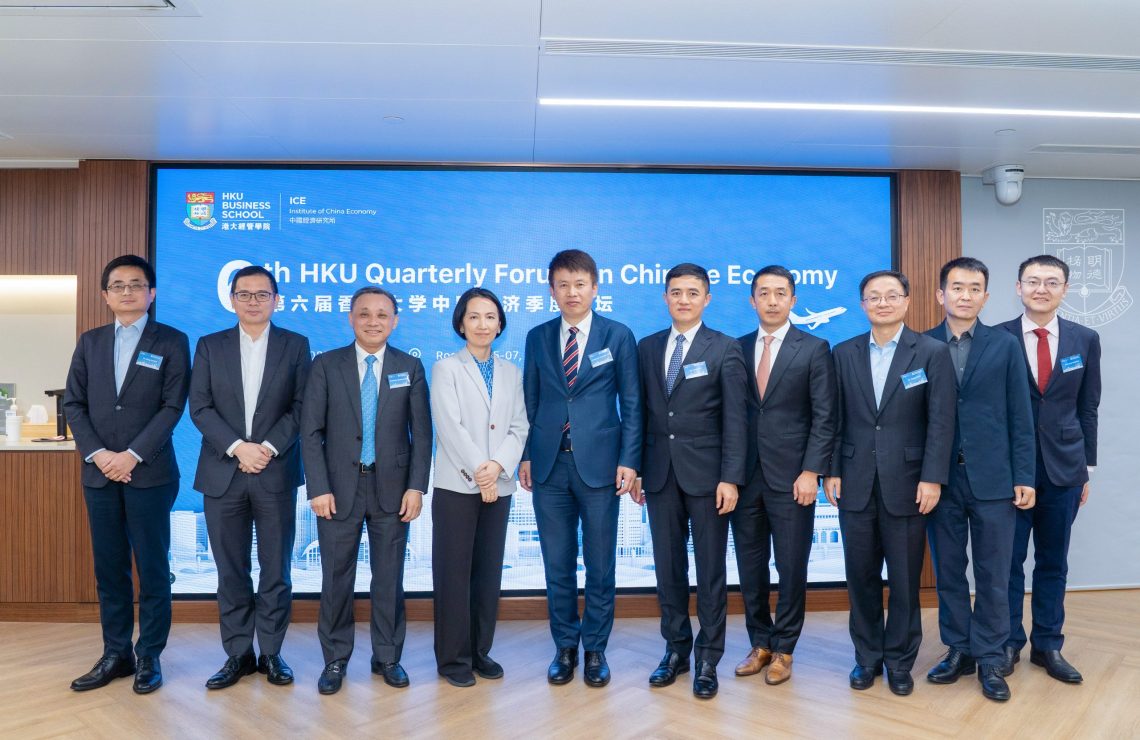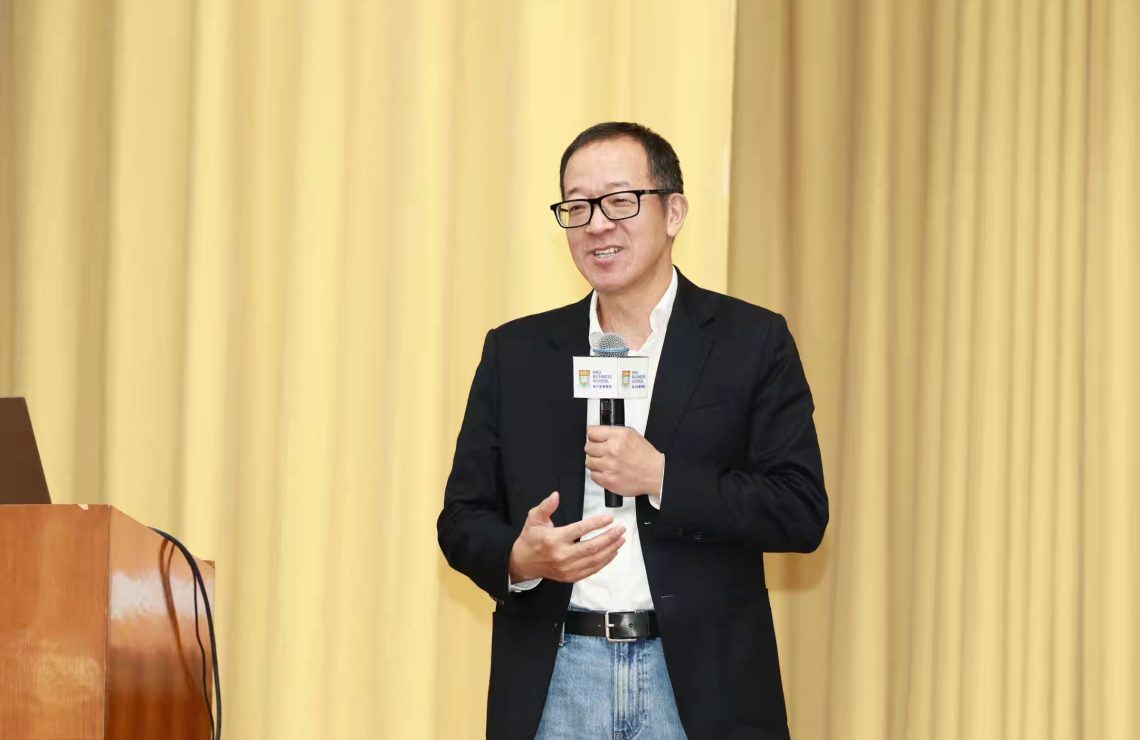Area of Excellence-Quantitative History Conference 2023: Exploring China and Hong Kong’s Journey through Data and Research
The Centre for Quantitative History of HKU Business School hosted a two-day conference on October 25-26, 2023, showcasing the latest quantitative history (QH) research carried out under the Areas of Excellence (AoE) Scheme funded by the Research Grants Council. This scheme aims to increase research collaboration. The conference brought together over 60 attendees from Asia, Europe, and North America to explore the latest trends and ideas in quantitative history on the HKU campus. It focused on four theme clusters that examined key dimensions of how China and Hong Kong reached their current positions: 1) ancient roots, 2) culture, 3) state capacity & institutions, and 4) finance, trade & Hong Kong.
The conference featured 16 ongoing research projects from the project team members and their collaborators. These projects applied the quantitative history approach, utilizing large datasets constructed from historical archives and archaeological records to reconstruct trends, and patterns, and assess causal relationships.
The conference opened with the first theme, “Ancient Roots from Quantitative Perspectives.” During the presentation on war and technology, Professor Zhiwu Chen, the Director of the Centre for Quantitative History and the Project Coordinator of the AoE project, highlighted that China offered a longstanding puzzle to historians in that its society had produced an astonishing number of inventions – including printing, the blast furnace, and gunpowder – but had never exploited them to their full potential. The second theme, “Culture, Religion, and Long-Term Consequences,” explored natural and human-created disasters using meticulously collected data, for example, the China Government Employee Database – Qing Jinshenlu (CGED-Q JSL) datasets collected by Co-PI Professor Cameron Campbell and his team of HKUST.
On the second day of the conference, the focus shifted to the theme “State Capacity, Institutions, and Development,” which was highlighted by five paper presentations, further emphasizing its popularity in the research landscape. Notably, Co-PI Professor Debin Ma of Oxford presented his 15-year research on a Millennium of Public Finance. The final theme, “Financial History, Trade, and the Rise of Hong Kong as a Financial Centre,” highlighted cutting-edge research in the field of quantitative history led by Co-PI Professor Chicheng Ma of HKU Business School. It is worth mentioning that all three papers in this cluster were either presented or co-authored by postgraduate research students, demonstrating the project team’s commitment to nurturing young scholars in this interdisciplinary research landscape. The conference also featured six research student presenters from HKU, HKUST, NUS, and Boston University.
The conference organizing committee was pleased to have four discussants join the team’s efforts to discuss the presented work. These included CQH Advisory Board member Professor Tetsuji Okazaki of the University of Tokyo, Professor Paul Seabright of the University of Toulouse, Professor Tuan-Hwee Sng of the National University of Singapore, and Professor Jin Li of HKU Business School. Their generous contributions and discussions were greatly appreciated by the team members and co-authors.
In the closing remarks, Professor Chicheng Ma, also the Associate Director of the Centre for Quantitative History, expressed gratitude to all the participating researchers for their support in strengthening interaction and collaboration in this ever-growing field. Co-PI Professor Cameron Campbell, Associate Dean of Humanities and Social Science at HKUST and the AoE-QH Team leader in external relations expressed delight, along with the team members, in the conference’s atmosphere, engagement, and presentations, ranking it among the top-tier workshops they have attended.
Stay tuned for upcoming AoE-QH events and activities in Hong Kong!
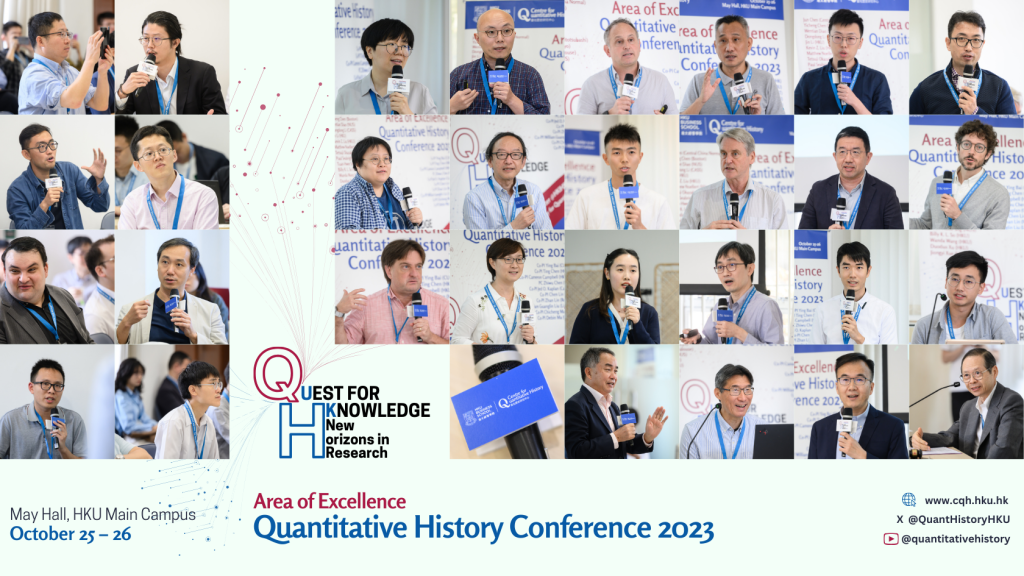
The two-day Area of Excellence-Quantitative History Conference 2023 gathered project team members (listed in alphabetical order): Zhiwu Chen (Project Coordinator), Jed O. Kaplan, Chen Lin, and Chicheng Ma from HKU; Ying Bai (CUHK); Cameron Campbell (HKUST); Zhan Lin (Renmin); William Guanglin Liu (Lingnan); and Debin Ma (Oxford), along with their collaborators, co-authors, invited discussants, and guests on the HKU campus.
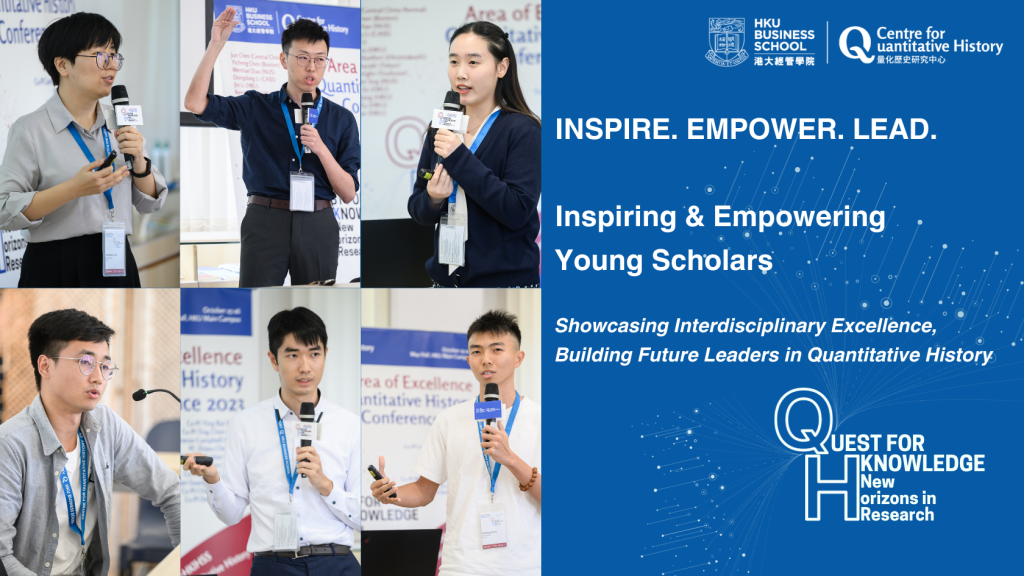
Highlighting young scholar contributions: Three conference papers co-authored by postgraduates, with six student presenters from top universities.
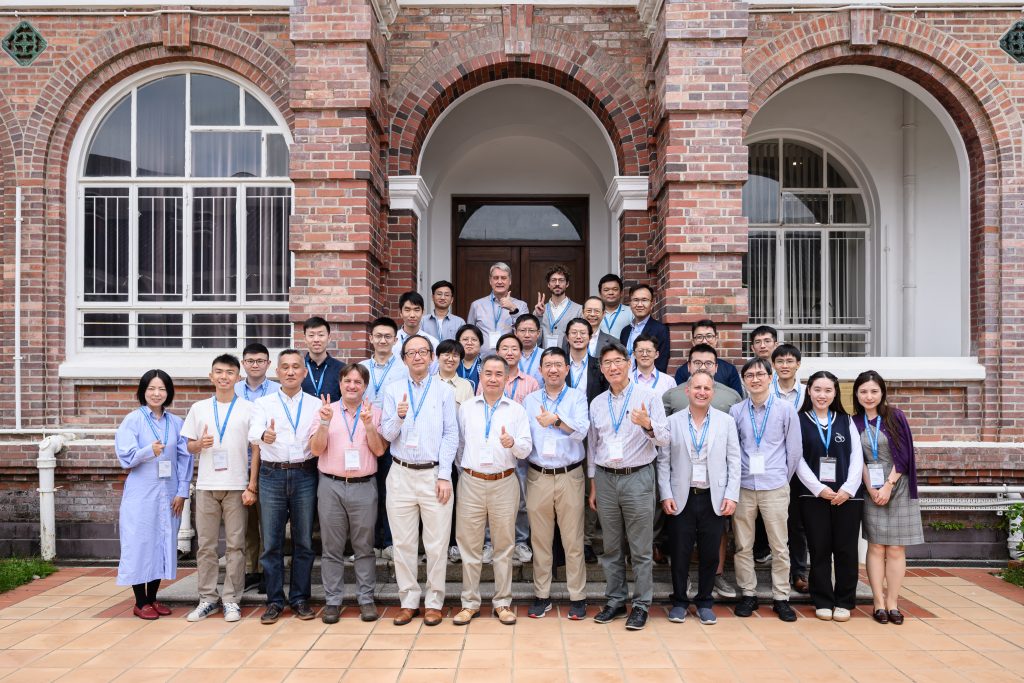
Group Photo: Day 1 of the conference outside the historic May Hall
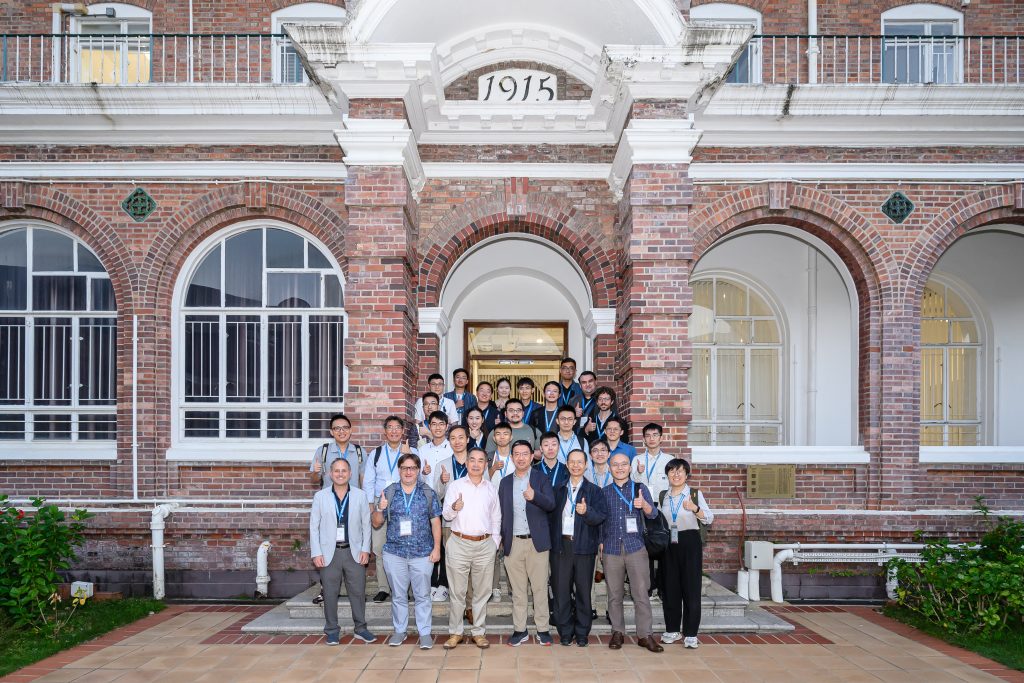
Group Photo: Taken before the conference participants headed off for the closing dinner.






